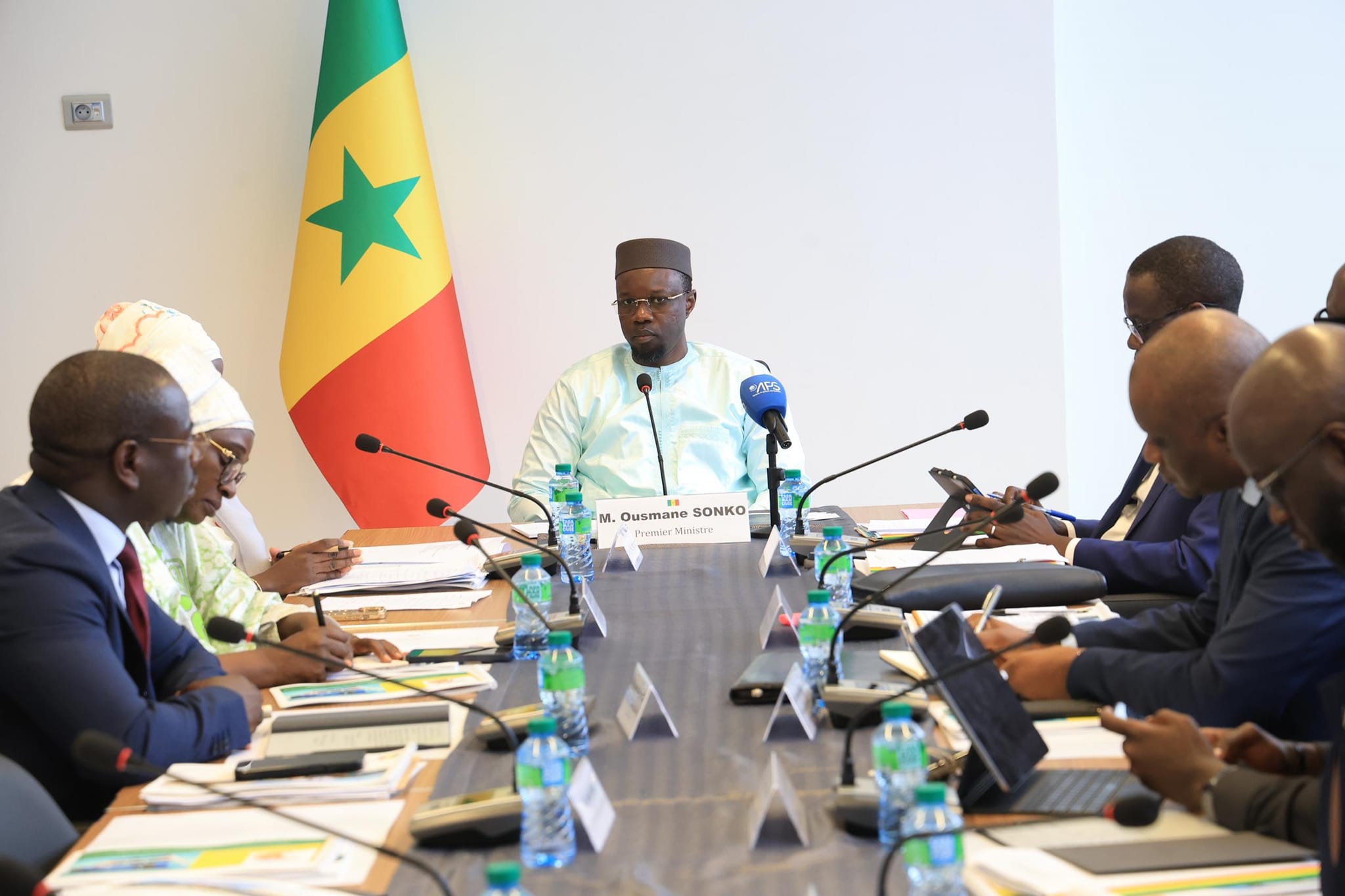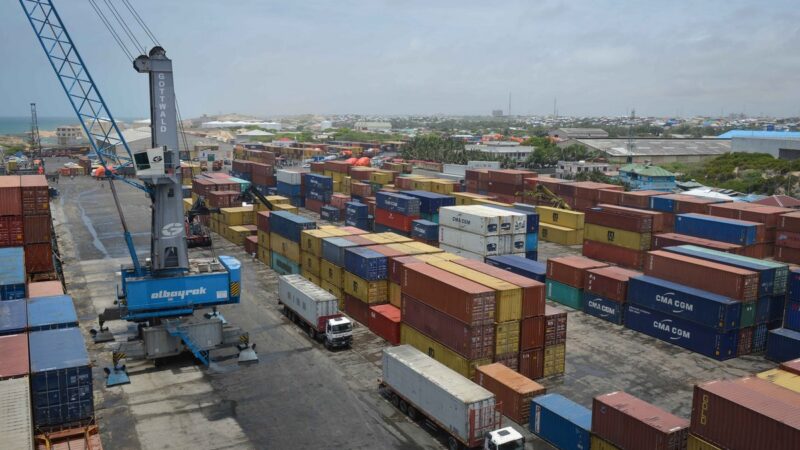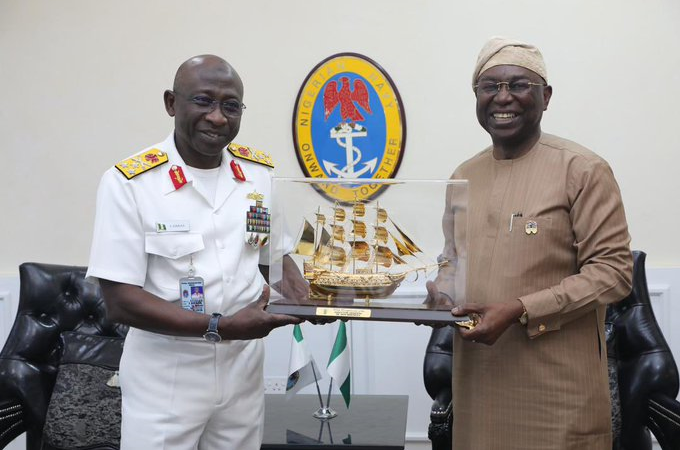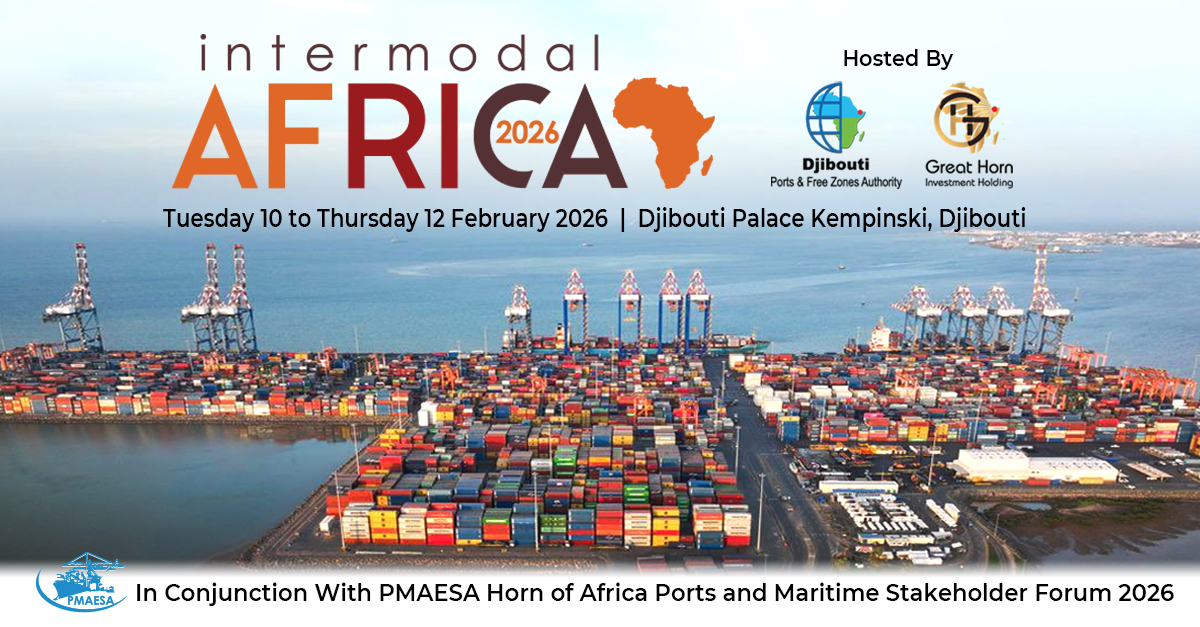Senegal – Special Interministerial Council on Maritime and Port Infrastructures: Decisions by the Prime Minister
A. STRENGTHENING AND DEVELOPING MARITIME AND PORT INFRASTRUCTURES AND FACILITIES
The Prime Minister commits the Minister in charge of Maritime and Port Infrastructures, in conjunction with the Minister of Finance and the Budget ; the Minister for the Economy, Planning and Cooperation, the Minister for Infrastructure and Land and Air Transport, the Minister for Energy, Oil and Mines, the Minister for the Environment and Energy Transition, the Minister for Industry and Trade, the Minister for Tourism and Handicrafts, and the Minister for Town Planning, Territorial Collectivities and Regional Development, to..:
1. For the Port of Ndayane :
- put in place a detailed action plan to complete the construction work on the container terminal within the contractual timeframe;
- structure and raise the financing needed to complete the other components of the Ndayane Multifunction Port project;
- evaluate the concession contract in the light of our country’s new vision and ambitions;
- take steps to mobilise the resources needed to reimburse and pay for the work on the shared maritime infrastructure and the costs of fully vacating the project site;
- ensure that the port of Ndayane is connected by rail and road to the corridors and structural networks;
2. For the Bargny-Sendou mineral and bulk port:
- ensure the timely completion of the construction and equipment works for the said port in order to put it into operation before the end of 2024, in accordance with the concessionaire’s commitments;
- establish an effective framework for monitoring and evaluating the concession contract;
- take steps to mobilise the resources needed to pay the costs of fully vacating the project site;
- ensure that the Bargny-Sendou mineral and bulk port is connected by rail and road to the corridors and infrastructure networks;
- initiate discussions on exclusivity.
3. For the Port of Dakar :
- draw up a restructuring and reconfiguration plan for the Port of Dakar, taking into account the development of the ports of Bargny-Sendou and Ndayane, with a view to complementarity and synergy.
- take the necessary steps to implement an upgrading programme for the Port of Dakar’s infrastructure to ensure optimum handling pending the commissioning of the Port of Ndayane.
- Increase storage space, including for transit operations.
- Rehabilitate the railway line within the Port of Dakar and connect the various terminals.
4. For secondary ports :
- Structure and seek the necessary funding to develop secondary ports into port hubs.
- Organise consultations with the chambers of commerce, industry and agriculture on how to implement the transfer of management of these secondary ports to SONAPAD.
5. For small-scale fishing ports :
- ensure the structuring, financing and implementation of the development programme for 23 modern ports for small-scale fishing, to which industrial zones for processing fish products will be attached;
- take the necessary measures to speed up the construction of the new modern fishing ports of Cap-Skiring and Fass-Boye, and the rehabilitation of the Ouakam fishing quay planned under the SENRM Project financed by the World Bank.
- ensure the active involvement of local authorities in the management of fishing quays.
6. For marinas :
- ensure the structuring, fundraising and implementation of the Marina Development Programme, to which tourist areas will be attached.
7. For waterways :
- ensure that dredging, buoying and maintenance work is carried out on the navigation channels of the Casamance river and the Saloum arm of the sea, and that the Saint-Louis breach is stabilised to improve navigation safety;
- secure sustainable funding for waterway maintenance.
8. To develop the shipbuilding industry :
- Ensure that a shipbuilding industry development programme is put in place, incorporating a diversification of shipbuilding, repair and dismantling services to make it a dynamic sub-sector.
9. To control land ownership on sites where maritime and port infrastructures are to be built:
- to ensure, from now on, in relation with the competent services, the identification, mapping, registration and issue of the titles necessary to secure the sites selected and their inclusion in the National Territorial Planning and Development Plan (PNADT);
- to improve the cohabitation between towns and ports, by setting up a town-port programme in each port which aims to create harmony between the port and the town in which it is located.
B. IMPROVING THE EFFECTIVENESS, EFFICIENCY AND COMPETITIVENESS OF MARITIME AND PORT INFRASTRUCTURES
The Prime Minister commits the Minister for Fisheries, Maritime and Port Infrastructures, in conjunction with the Minister for the Armed Forces, the Minister for Finance and the Budget, the Minister for Industry and Trade and the Minister for Infrastructures and Land and Air Transport to :
10. To strengthen maritime safety and security, protect the fluviomaritime environment and improve nautical operations:
- ensure the operational implementation of the national safety and security strategy.
- ensuring that an integrated fluviomaritime surveillance system is put in place to prevent accidents, combat illegal acts at sea and prevent marine pollution;
- ensure that an efficient hydrographic service is put in place to improve the safety of navigation, through better monitoring and control of waterways.
- ensure that the Dakar fishing port is emptied of vessels no longer in operational condition.
11. Attractive taxation and pricing :
- Consider, with the strict requirement of preserving the public interest, tax incentives and competitive tariffs to attract economic operators and private investment.
12. For the dematerialisation of procedures:
- Take the necessary measures to continue digitising all procedures for maritime, port and logistics services with a view to improving their performance.
C. STRENGTHENING NATIONAL AND SUB-REGIONAL CONNECTIVITY OF MARITIME AND PORT INFRASTRUCTURES WITH THE HINTERLAND
The Prime Minister commits the Minister for Fisheries, Maritime and Port Infrastructures, in conjunction with the Minister for African Integration and Foreign Affairs, the Minister for Finance and the Budget, the Minister for Industry and Trade and the Minister for Infrastructures and Land and Air Transport, to :
13. For the monitoring, management and operation of the Corridors :
- set up an institutional framework to coordinate the development of corridors (road, rail and sea-river);
- identify and remove constraints with a view to facilitating trade and monitor their performance.
14. To develop infrastructure and equipment on the corridors and relieve congestion at the port hub :
- ensure that a corridor development programme is put in place, including the construction of dry ports with, in particular, storage warehouses, parking areas and juxtaposed control posts, which are necessary to improve connectivity between ports and industrial centres, but also with the hinterland and other neighbouring countries.
- ensure that the provisions of WAEMU Regulation 14 on the control of the gauge, weight and axle load of heavy goods vehicles are applied and complied with.
15. To optimise operations :
- Ensure the implementation of measures or Agreements for the facilitation of cross-border trade, with the digitalisation of procedures and the deployment of the Interconnected System for the Management of Goods in Transit (SIGMAT).
16. To strengthen and improve national and sub-regional sea-river links for passengers and goods:
- ensure the development of the national river-sea fleet, enabling the creation of new maritime links and the development of national cabotage services, taking into account the opening up of the islands in the natural regions of Saloum and Casamance, at community and sub-regional level, with particular emphasis on the Dakar-Praia maritime link project;
- ensure that the necessary measures are taken to transform COSAMA into a national shipping company with a modern fleet, in order to improve national and sub-regional shipping services.
D. PROMOTING SOVEREIGNTY, DEVELOPING HUMAN CAPITAL AND INCREASING MARITIME, PORT AND LOGISTICS EMPLOYMENT
The Prime Minister commits the Minister for Fisheries, Maritime and Port Infrastructures, in conjunction with the Minister for Finance and the Budget, the Minister for the Economy, Planning and Cooperation, the Minister for Vocational Training, the Minister for Higher Education, Research and Innovation, the Minister for Labour, Employment and Relations with Institutions, to :
17. To strengthen maritime, port and logistics human capital:
- Strengthen existing structures, in particular the École Nationale de Formation Maritime (ENFM), the Trainmar Centre and the Centre de Formation aux Métiers Portuaires et de la Logistique (CFMPL) on the one hand, and set up a maritime academy to train maritime and port professionals, as well as regional training centres for maritime, port and logistics professions for the massification of employment, on the other hand.
18. For the Observatory of Maritime, Port and Logistics Professions (OMMPL):
- ensure the adoption and implementation of a policy for the massification of maritime, port and logistics jobs with a system for monitoring supply and demand (the OMMPL), in line with the national and international needs of the maritime, port and logistics sector.
19. To strengthen national preference and local content:
- ensure that incentives are put in place to encourage the participation of the national private sector in the development and operation of maritime and port infrastructure, inland waterway and maritime transport services and logistics, giving priority to national and Community vessels for port services.
E. IMPROVING THE GOVERNANCE AND SOVEREIGNTY OF MARITIME AND PORT INFRASTRUCTURES
The Prime Minister commits the Minister for Fisheries, Maritime and Port Infrastructures, in conjunction with the Minister, Secretary-General of the Government, the Minister for African Integration and Foreign Affairs, the Minister for Justice and Keeper of the Seals, the Minister for Finance and the Budget and the Minister for the Economy, Planning and Cooperation to :
20. To improve the governance of maritime and port infrastructures :
- Implement the reforms needed to clarify the roles, missions and responsibilities of public and private stakeholders.
21. To improve the legal and regulatory framework:
- put in place a legal and regulatory framework for fluvio-maritime transport and logistics adapted to the new vision of the Maritime Transport Sector and ensure the ratification of the relevant international conventions of the sector favouring its attractiveness and development.
22. To strengthen the management and operation of secondary ports and artisanal fishing ports:
- put in place the regulatory framework needed to develop and improve the management, operation, upkeep and maintenance of secondary ports, artisanal fishing ports and marinas.
23. To strengthen the system for financing dredging :
- put in place the regulatory framework needed to improve the system for financing initial and maintenance dredging work; and consider pooling this work in order to share the costs of mobilising and demobilising dredgers.
24. For the re-examination of concession contracts:
- put in place the necessary framework for the evaluation of concession contracts for maritime and port infrastructures, particularly with regard to compliance with contractual clauses, taking into account the new vision and guidelines adopted for the development of Maritime Transport.
- ensure the evaluation of all exclusivity or quasi-exclusivity clauses and assess their impact on performance, the development of maritime transport and the diversification of the port platform for territorial equity.
F. DEALING WITH ENVIRONMENTAL ISSUES IN PORT INFRASTRUCTURES, IN CONNECTION WITH THE STORAGE OF OIL AND GAS PRODUCTS
25. For the environmental safety of port and maritime facilities
The Prime Minister commits the Minister responsible for port and maritime infrastructures, in conjunction with the Minister for the Environment and Ecological Transition, to :
- ensure strict compliance with environmental and social assessment requirements in the implementation of maritime and port infrastructure projects;
- ensure that the environmental risks associated with oil and gas exploitation are fully addressed; and
- put in place an appropriate storage system, in particular in line with port and maritime infrastructures and taking into account the marine and coastal environment and related activities.
G. PROSPECTS FOR IMPLEMENTING THE ROADMAP AND ACTION PLAN FOR THE DEVELOPMENT OF MARITIME AND PORT INFRASTRUCTURES
26. The Prime Minister commits the Minister for Fisheries, Maritime and Port Infrastructures, in conjunction with the Minister Secretary-General of the Government and all parties concerned, to ensuring that the governance framework for the roadmap for the development of maritime and port infrastructures is put in place, by ensuring that the necessary regulatory acts are passed to set up the bodies responsible for driving forward, coordinating, supporting and evaluating the implementation of the roadmap and the decisions taken by the Interministerial Council.
27. To mobilise financial resources :
– organise a round table of donors to mobilise the financial resources needed to implement the Maritime and Port Infrastructure Development Strategy.
28. To monitor the implementation of decisions
The Prime Minister commits the Minister, Secretary General of the Government, to monitoring and reporting on the implementation of the decisions of the Special Interministerial Council on Maritime and Port Infrastructures.
Source : Government of Senegal






